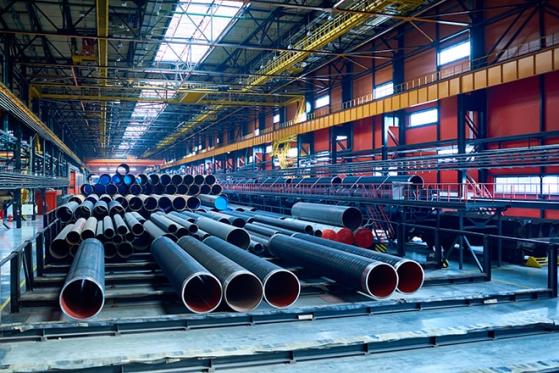China’s Ministry of Commerce (MOFCOM) has announced an expiry review of the anti-dumping measures on stainless steel billets and hot-rolled stainless steel plates and coils imported from the European Union (EU), the United Kingdom (UK), the Republic of Korea (ROK), and Indonesia.
This review is set to commence on July 23, 2024. The announcement follows the imposition of these duties five years ago to protect the domestic market from unfair trade practices.
Background and purpose of the review
The anti-dumping measures, initially enforced on July 23, 2019, targeted imports of stainless steel products from the EU, Japan, the ROK, and Indonesia.
The duties ranged from 18.1% to 103.1%, depending on the specific circumstances of each country and company involved.
These measures aimed to shield the Chinese stainless steel industry from the adverse effects of dumping, where foreign manufacturers sell products at a price lower than the market value, thereby undercutting local producers.
MOFCOM’s review will determine whether the termination of these duties would lead to the continuation or recurrence of dumping and consequent damage to the domestic industry.
If the review concludes that dumping is likely to persist or recur, the anti-dumping measures could be extended.
Industry impact
Stainless steel billets and hot-rolled stainless steel plates and coils are integral to various industries, including shipbuilding, container manufacturing, railway construction, electric power, and the petroleum and petrochemical sectors.
The continuation or cessation of these anti-dumping measures will have significant implications for these industries.
Chinese manufacturers have benefited from the protection afforded by these duties, enabling them to compete more effectively against foreign imports.
However, industries reliant on stainless steel products have faced higher input costs due to the reduced competition and increased prices resulting from these measures.
International trade dynamics
The expiry review is also set against the backdrop of China’s broader trade relations with the EU, UK, ROK, and Indonesia.
The imposition of anti-dumping duties often leads to diplomatic tensions, as affected countries may view these measures as protectionist and contrary to the principles of free trade.
The outcome of this review could influence China’s trade relations with these regions, particularly if the measures are extended.
The EU, UK, ROK, and Indonesia may argue that their producers no longer engage in dumping practices and that the anti-dumping measures should be allowed to expire.
They may present evidence to MOFCOM to support their case, emphasizing changes in market conditions, production costs, and pricing strategies.
Japan’s exclusion from the review
Notably, the anti-dumping measures on imports from Japan will expire on July 23, 2024, without being subject to this review.
This decision suggests that MOFCOM does not anticipate a significant risk of dumping from Japanese producers in the near future.
The exclusion of Japan from the review might be seen as a diplomatic gesture or a recognition of changes in the trade dynamics between China and Japan.
Economic considerations
The review’s outcome will have broader economic implications for China. Extending the anti-dumping measures could support domestic producers but might also lead to retaliatory measures from the affected countries.
Conversely, allowing the measures to expire could lead to increased competition and potentially lower prices for stainless steel products, benefiting downstream industries and consumers.
The decision will also reflect China’s current economic strategy and trade policy priorities. Balancing the interests of domestic producers with those of industries reliant on imports and maintaining stable international trade relations will be key considerations for MOFCOM.
This article first appeared on Invezz.com
